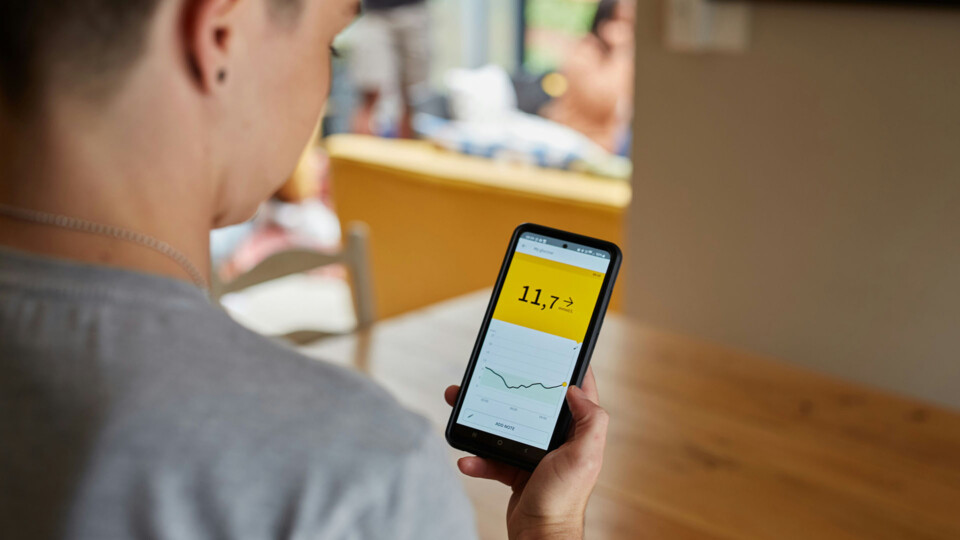Leeds Beckett research helping people with Type 2 Diabetes
New research by Leeds Beckett University has helped improve an NHS programme to support people living with Type 2 Diabetes and obesity or overweight to lose weight, reduce the need for medication and achieve remission. The programme is now being rolled out across the country.

Experts in the Obesity Institute at Leeds Beckett University led the £1.5 million study to evaluate the NHS Type 2 Diabetes Path to Remission programme. Professor Louisa Ells, Co-Director of the Obesity Institute at Leeds Beckett University, explained: “Living with Type 2 Diabetes can significantly impact health and wellbeing, and it has been estimated that up to 5.5million people in the UK could be living with diabetes by 2030, if urgent action isn’t taken.
“Findings from our three-year evaluation have shaped what the national programme looks like today – we shared all our findings with NHS England who were able to use them to make improvements to the service.”
The study found that the programme provided value for money, and can work successfully to improve people’s diabetes control and weight loss. However, it is not a one-size fits all solution. Older adults, and people from certain ethnic groups were less likely to start the programme – and young adults and people living with severe obesity were less likely to complete it.
Participants on the programme consume low calorie, nutritionally complete, total diet replacement products for up to 12 weeks. This is accompanied by support to re-introduce food and maintain weight loss for the remainder of the year-long programme.
Professor Ells said: “Some people found the programme easier than others, and we spoke to many staff and patients involved in the programme to find out why. This helped us identify several areas that could be improved which we fed back to the NHS.”
Changes made as a result of the research findings include:
• Making the programme more people focused, – participants can now choose their preferred support method – either digital or one-to-one in-person;
• Improving the focus on using of behaviour change theory and techniques, and ensuring the delivery of the programme is consistent across the country;
• Improving the range and format of the diet replacement products used in the programme – to improve uptake and reduce inequalities;
• Providing peer support to all service users.
• Reducing health inequalities by highlighting the importance of cultural awareness for staff – being able to adapt and ensure the programme is inclusive;
• The research informed a name change – from the Low Calorie Diet Programme to the Type 2 Diabetes Path to Remission programme – making the purpose of the programme clear.
Chris Earl, 61 from Matlock, Derbyshire, took part in the programme from September 2022 to September 2023. He said: “My Type 2 Diabetes was picked up through my annual health MOT and, as I was 133kg at the time, I was offered the chance to join the programme. I was very determined to stick to the programme and needed the push to change – and it worked. My weight is now around 92kg.
“It is crucial to accept a whole lifestyle change. In the diet replacement stage, it takes a bit of getting used to drinking three litres a day and the soups are bland – I added herbs and spices. The hardest part of the programme was re-introducing proper meals and eating 1500 calories a day. I was lucky to have the support of my wife – we cook our meals together, using the menus from Diabetes UK and all fresh products.
You have to be focused and self-reliant at this point as the meetings go down to only once a month.
“I have benefited from the programme in a big way, and am now joining a Diabetes UK regional committee. I am one of three participants working with Leeds Beckett on further research into the long-term effect of the programme, and how it can be improved to reach more diverse communities and socioeconomic groups.”
The programme became available in all areas of England from 1 April 2024.
The research team included an expert panel of patients with experience of living with obesity and/or Type 2 Diabetes, from diverse ethnic communities, who co-designed the study and were involved in every stage of the research.
The research received £1,502,156.92 of funding from the National Institute for Health Research (NIHR) Health Services and Delivery Research funding programme.

